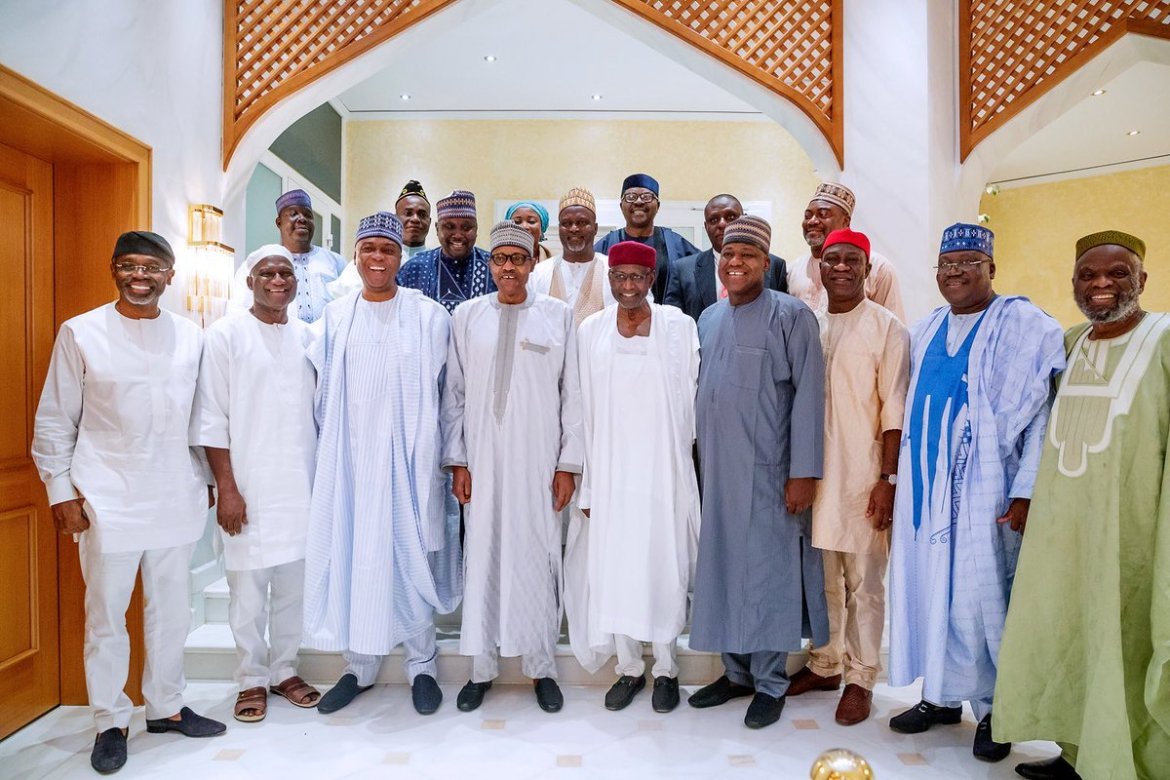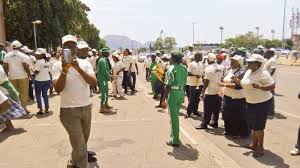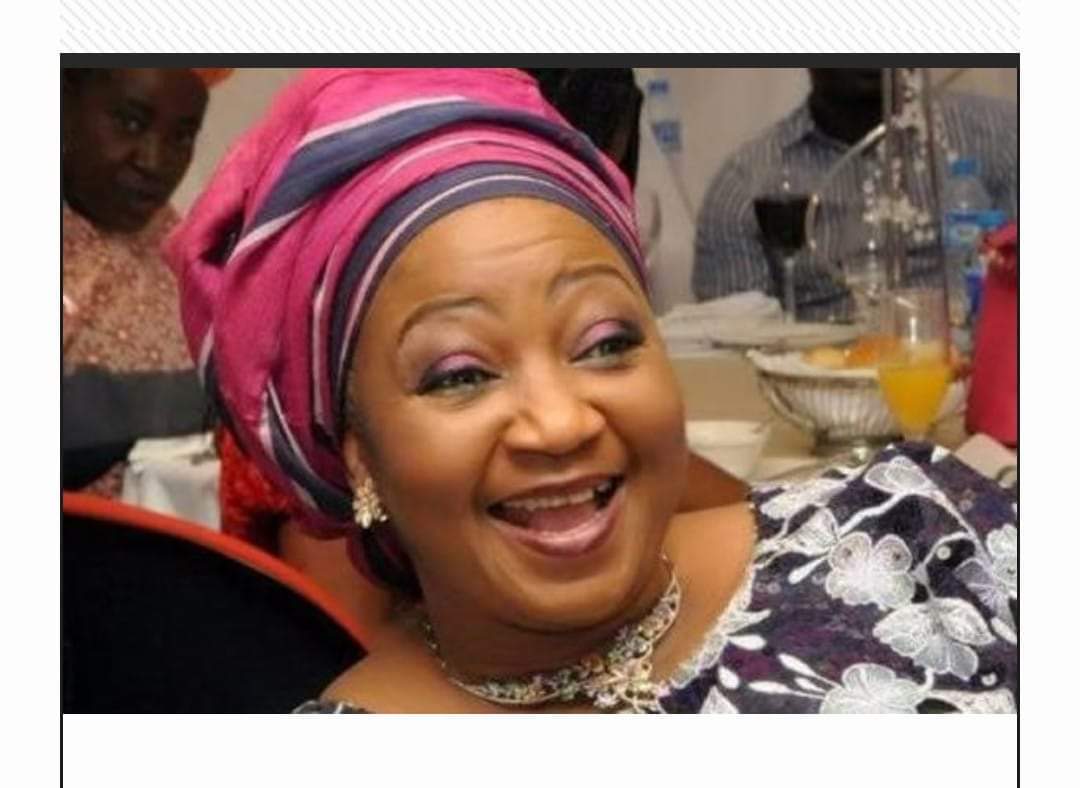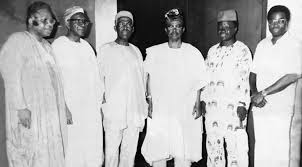- Home /
- Solomon's Column
Solomon's Column
You are visitor n° 




JAMB : Admissions or Revenue Generation /Leadership : Between China and Nigeria
In 1974, the committee of Vice Chancellors of Nigerian Universities put in place a panel of the two admissions experts-Mr. L.R Kay, Secretary, Universities Central Council on Admissions of the United Kingdom and Mr. Pettipierre, Director of Ontario Universities Application Center of the province of Ontario, Canada-to examine issues and problems arising from the system of admissions into universities then.
The panel submitted its report to the committee.
Sometime in February 1976 the Federal Military Government also put in place the National Committee on University Entrance, with Mr.Michael .S. Angulu as Chairman , the committee comprised of 14 other members, who represented various other interests and bodies related to matriculation examinations, university placement and post secondary education in the country.
In February 1977, the the Angulu led committee submitted its report and recommendations.
After going through the recommendations, the committee of Vice Chancellors, the National Universities Commission and the officials of the Federal Ministry of Education made their own recommendations to government.
Again Decree 4 of 1993, now mandated the board to conduct admissions in collaboration with higher institutions.
And in March, 1977 the Federal Government accepted the recommendations and went on to constitute the Board now known as the Joint Admissions and Matriculation Board(JAMB), while a year later the board became a legal entity with the promulgation of the Decree 2 of 1978.
The Federal Government then went on to appoint Mr. Angulu as the first Registrar and Chief Executive of the Board in 1977.
The mandate of JAMB is to ensure uniform standards in the conduct of matriculation examinations and placement of suitably qualified candidates into higher institutions in Nigeria.
In December, 1989, the Federal Government repealed Decree 2 of 1978 and in its place promulgated Decree 33, which empowered the board to conduct admissions into Polytechnics and Colleges of Education all over the country.
Although the functions of JAMB does not include revenue generation, with over one million candidates purchasing the entrance examinations forms in 2019, the Board is now a major revenue earner for government while several other irregularities shadow the operations of the board.
A cross section of Nigerians are of the belief that limited educational exposure could be an obstacle to achieving positive results.
However, today higher institutions conduct independent post UTME tests, which have been trailed by lamentations by parents and guardians of the enormous costs implications for their children and wards into higher institutions of learning in Nigeria.
Despite the rigorous process of admissions, the end products are not of satisfactory quality.
Without doubt the Joint Admissions and Matriculation Board(JAMB) seems overwhelmed by its challenges most especially after the introduction of the Computer Based Tests(CBT).
These challenges, which are enormous have characterized every examination the board has conducted in recent times.
With no hope for a possible reversal in the near future.
Even though results of its most recent examinations have been released, thousands of candidates insist that a lot is wrong with the conduct of the examinations, which the board has consistently ignored.
The dynamism and vision of the present leadership of the Board is debatable, if the comments, remarks and questions of candidates and their sponsors are anything to go by.
Mao Zedong, popularly known as Chairman Mao, was successful with his noble goals for China through despotic means.
His leadership was severe, dictatorial and personalized.
For as long as Chairman Mao's Cultural Revolution lasted, thousands of Chinese died of starvation and inhuman labor.
Mao and his co-travelers argued that the same was the price their people had to pay for re-education.
This brand of governance ensured the extermination of the heroes of the civil war and the old party chieftains by the President's armed squad.
Chairman Mao is perhaps the role model of those who hold sway in Nigeria today.
Indeed, the Kaduna state Governor, Mallam Nasir El Rufai is among several other political office holders, who adore President Muhammadu Buhari.
Those in support of this argument insist that on a number of occasions, the Kaduna state Governor knelt down to greet and/or consult with the President. They maintain that this is only a sign of respect in the traditional African setting.
However, those against this order of things, stress that the underlying factors revolve around hypocrisy and boot licking.
Nigerians are yet to stop complaining of constitutional breaches and the unabated trampling of the rule of law in the dust, without noticeable changes by the powers that be.
From recent events in the country, the economic reform programs of the All Progressives Congress(APC) led government at the center and in the states, are modeled along the thinking of a free market economy.
It is doubtful if the government, in most recent times, has managed the economy for the benefit of Nigerians.
Of worry is the state of manufacturing industries, which could be said to be epileptic, even as food security is a mirage, insecurity is the chorus everywhere, while crude oil remains the major hope of the present administration.
Interestingly, the future growth of the Nigerian economy rests comfortably on diversification and focus on visionary and creative people-friendly economic policies, although the government still over-relies and over-depends on crude oil to fund its programs.
Can the present administration turn around the troubled economy ? Nobody knows.
Lessons in Insecurity : The Nigeria Model/ / Crime and the Criminal Silence of Residents of Olorunsogo Molete Ibadan
Adolf Hitler labelled the extermination of the Jews in Europe,''the Final Solution'', while the military dictatorship in Argentina which embarked on an unprecedented killing of its citizens code named same ''The Process of National Reorganization''.
The activities of bandits, insurgents and herdsmen in Nigeria which have claimed thousands of lives are similar to the above mentioned.
Between 1976 and 1983, millions of citizens lost their lives in Argentina.
Death squads operating under secret circumstances and the cover of the state, murdered about 11,000 people, which is now described as ''The Disappeared''.
Two million people escaped persecution, while hundreds of babies born to ''The Disappeared'' were either sold, bartered or murdered.
Indeed, happenings in different states of Nigeria, including, Borno, Benue,Taraba and Plateau and Zamfafra states, among several others, indicate Government's adequate knowledge of the situation, while unabated killings go on.
 The relocation of the Inspector General of Police to Benue state, one of the troubled spotsthen, did not reverse the status quo.
The relocation of the Inspector General of Police to Benue state, one of the troubled spotsthen, did not reverse the status quo.
On March 23 1976, General Jourge Videla, Head of the Argentine Army overthrew the Government of Isabelita Peron, a former night club dancer. In this country, no civilian Government had completed its tenure, except for Juan Peron, who spent only a tenure in office.
However, in Nigeria, a retired General, Muhammadu Buhari,is in charge, even though the country still experiences symptoms of economic hunger, poverty, mass unemployment, corruption and a high level of insecurity.
The Ejercito Revolucionario de Pueblo and the Montoneros, leftists, took to kidnapping and killings to express their displeasure over bad governance in Argentina. In Nigeria, kidnappings and killings have gone on unabated. Political watchers put the blame at the doorstep of Government.
Presently, Nigerians are worried over Government's inaction, as the country gradually slides into anarchy.
Accusing fingers are been pointed at political office holders who have failed to deliver the dividends of Democracy.
Interestingly, the body language of the National Assembly, is an indication that the lawmakers, are yet to realize the need for the entrenchment of the rule of law and due process in the polity, just as impunity is now the order of the day
In 2009, the Defense Minister of Madagascar , Cecile Manorohanta, resigned her appointment on the grounds that she would not be part of a Government that kills its citizens.
Also, the people of Madagascar vigorously opposed the attempts by President Marc Ravalomanana to lease one million acres of their land to a Korean firm, Daewoo, for intensive farming. The people have deep ties with their land and as a result view the President's action as a betrayal.
The same scenario is playing out in Nigeria, with the Government of the day requesting each of the 36 states of the Federation to provide 5,000 acres of land for its p
The insecurity in the land has made foreign investment impossible, while the disenfranchised and poor majority look into the gloomy future for reprieve.
The Oyo state Police Command, under successive, Commssioners of Police, is determined to shield some of its personnel, who have for long worked hand-in-gloves with some members of the public to intimidate, threaten, attack, blackmail and terrorize the Editor-In-Chief of Federationews2day, Solomon Adewunmi (one.emyspot.com)
The officers and men attached to the Iyaganku Area Command and the Felele Police station, have always acted by proxy using residents of Olorunsogo, Molete, who remain solidly behind their actions.
On two occasions, one of which was on Sunday, 25 May, 2008, Mrs. Koloko in connivance with the then Divisional Crime Officer(DCO) the Challenge Police station, Orita Challenge, facilitated the arrest of the journalist. While in the office of the DCO, the journalist was repeatedly threatened.
 In another plot against the journalist,a letter titled” A Petition Against Solomon Adewumi” and dated 20 November, 2008, was received by the Assistant Commissioner of Police(ACP), Iyaganku Area Command, Mrs. Abiodun Ige on 30 April, 2009.
In another plot against the journalist,a letter titled” A Petition Against Solomon Adewumi” and dated 20 November, 2008, was received by the Assistant Commissioner of Police(ACP), Iyaganku Area Command, Mrs. Abiodun Ige on 30 April, 2009.
On Saturday 9 May, 2009, Mrs. Ige ordered the arrest of Adewunmi on trumped up charges,through one Simon and four other heavily armed policemen from the same command. During the detention of the journalist for eight hours, the policemen repeatedly provided situation report to Mrs. Koloko through the phone.
Curiously, one Chukuwuma Joseph, Bola Adeniran and Mrs. Taiwo Owoeye, a pastor’s wife, who Adewunmi had reported a case of malicious damage against in August, 2008 at the Felele Police station, were now used as witnesses in the case generated by the Police.
Even though the worried journalist informed the then Commissioner of Police, Baba Adisa Bolanta, about this development through a letter titled”Attempts To Pervert Justice” and dated 11 May, 2009, and even made verbal protests, the police response was nonchalant.
Indeed, the letter was referred to the Provost Marshall’s office at the state police command, under the headship of a Deputy Superintendent of Police, Oseni and one Sergeant I.Oladejo was assigned to handle it. Surprisingly, both opted to cultivate a mutually beneficial relationship with those the letter was written against.
Now desperate to pervert justice, the police moved the duo out of reach, while Joseph Ale, another policeman attached to the Felele Police Station, who midwifed the forceful entry into an apartment in the journalist’s residence, was subtly given the go ahead to instigate Chukuma Joseph and four others against the journalist. Joseph Ale was the Investigating Police Officer(IPO) in a case of malicious damage reported by Adewunmi, in August, 2008.
Not done with their sinister plot, on Sunday 9 August, 2009, the police influenced a false report of threat to life by one Mrs. Olawoyin against the journalist at the Felele Police station. One Kehinde was assigned the case to investigate, but she compromised her position as a police rank and file. Mrs. Olawoyin’s husband, a cooperative officer with the Oyo state Ministry of Trade, Investment and Cooperatives, conspired with, a carpenter, Ale and some other policemen to forcefully gain entry into an apartment in Adewunmi’s residence, while he was being interrogated at the Iyaganku Area command.
Although this was brought to the notice of the police, the headship of the Felele Police station decided to look the other way. The Edo born Divisional Police Officer (DPO) had always displayed signs of bias in handling cases brought before him concerning the journalist. Interestingly, the DPO has always maintained a symbiotic relationship with all those against the journalist.
In order to actualize a well scripted plot, the journalist was detained from 4.00pm in the evening to 9.30pm in the night, with plans to put him in the cell till the next day. This was, however thwarted by the then Police Public Relations Officer(PPRO), Bisi Okwuobi, who called the DPO to justify his action.
Although the journalist informed the Commissioner of Police of the incident in a letter dated 31 August, 2009 and titled ”Denial Of Justice”, and even met on two separate occasions with the Police Boss, mum was the word from the police.
Greatly disturbed by the attitude of the Oyo state Police Command, the journalist wrote a letter to the Assistant Inspector General of Police, zone11, Osogbo, Osun state, Yesufu Mohammed, titled ”INJUSTICE” and dated 3 December, 2009. After the IPO in charge of the case, one Inspector Odelade, took the statement of the journalist, various excuses characterized his subsequent reactions.
Again on Saturday 14, August, 2010, the same Chukwuma Joseph and his wife, Blessing, in connivance with some night guards in the Olorunsogo, Molete area, brought false allegations against the journalist, physically assaulted him and forcefully gained entrance into his apartment. Forty thousand naira cash and a number of his personal belongings were stolen. After which a report was made at the Felele Police station.
The same Joseph Ale, who has always played a role in the travails of Adewunmi was assigned the case. Ale took Chukwuma Joseph’s statement and conducted a search of the journalist’s apartment alongside the CRO of the police station. Also present were the night guards and the coordinator of the night guards.
Surprisingly, a plain paper without the Nigeria Police Force logo and name was presented as a search warrant. Indeed, Adewunmi’s request to be shown a search warrant, was met with a forceful entry of his apartment by the policemen. No search warrant was presented by the policemen.However, nothing incriminating was found in his apartment.
Again, another search was carried out on the journalist’s apartment, the same day, by Kehinde, another police man- Olayiwola Ibrahim, Chukwuma Joseph, a night guard and the coordinator of the night guards. Sadly, no search warrant was presented again, while some items were, secretly removed from his apartment. Again, nothing incriminating was found in the journalist’s apartment.
In quick succession, he was detained from 7.00am on that saturday morning, 14 august, 2010, until 2.00pm on Sunday, 15 August, 2010, and hurriedly arraigned before the Iyaganku magisterate court 7 on Monday, 16 August, 2010. With active connivance of the D.P.O OF the Felele Police Station, Adewunmi was remanded in the Agodi prisons for three days.
Again, he wrote a letter to the AIG, zone11 dated 23 August 2010 and titled”INJUSTICE PART 2”. In the letter, he recounted his experience in the hands of the police at the Felele Police station.
However, the letter was referred to the Oyo state Police Command, which in turn sent it to the Criminal Investigation Department(CID), Iyaganku. The Investigating Police Officer, Femi Ajibade with the assistance of the journalist invited Chukuma Joseph and others mentioned in his petition. But curiously, after obtaining their statements, Ajibade only searched the apartment of the principal suspect, without visiting the scene of the incident and inviting another principal suspect, Blessing Chukuma.
On saturday, 8 october, 2011, at about 8.45pm, one Yemi Ajala of Kehinde Aderibigbe street, Olorunsogo, Molete, Ibadan attacked and robbed the journalist. The journalist reported the matter at the Felele police station the next morning. When the policewoman on duty would record the entry, she recorded assault as against the robbery the journalist reported. She said that the suspect’s brother, who is a Superintendent of Police and Divisional Traffic Officer of the Police Divisional Headquarters, Iyana Offa, was her ‘Oga’. Indeed the senior police officer eventually showed up at the station to bail the suspect. And eversince the authorities of the police station have refused to act on the matter.
Most recently, a man in his mid forties, Daniel Offiong, who rented a room in a three bedroom flat, pretended to be a taxi driver, to get the accommodation. Although his has a golf car, painted in Oyo state Taxi colours, he does not use it for that purpose.
For long, the man, Offiong had been living a suspicious life, while receiving visitors, who are mostly ‘okada riders, in his apartment. Despite the fact that the journalist intimated the Divisional Crime Officer of the Felele Police station of the ways of the man, other considerations beclouded his sense of reasoning. These days Offiong and his cohorts hide motorcycles of suspicious origins in his apartment, with the knowledge of the Police.
While the Landlady of 5 Kehinde Aderibigbe street, Olorunsogo, Molete, has converted the journalist's residence to a refuse and feaces dump.
Also at No. 6 of the same street, Mrs. Adesanya(Mama Tobi) who once resided there, but now operates a grinding machine in the same address, had on 30 December, 2015 alongside are family members at about 8.30pm in the night, attacked and robbed the journalist, on his way into his residence.
Interestingly, about five young men who reside at No. 4 of the same street, led by one Michael, on 21 December, 2018 at about 1.00 pm in the afternoon attacked the journalist, when he raised alarm on sighting the contents(arms and ammunition) they were putting into the boot of a Lexus salon car with tinted glasses. These young men have no visible means of livelihood, just as the residents in the community maintain criminal silence, when issues of these young men and their likes who are very many in the community are raised.
In addition, some hoodlums led by one Lekan and Segun Adewale of No. 8 of the same street, attacked, robbed and injured the journalist during the same period, even as they boasted that the police were aware of their actions.
Indeed, the Landlords and Tenants Association Iin Olorunsogo, Molete, Ibadan, led by one Alhaji Adetayo, have for several years played criminally suggestive roles in the Journalist’s travails.
Indeed, most house owners in the community are not meticulous, when they want to take in tenants. This has resulted in the high population of people with questionable character in the community.
Even, as majority of the youths have been brought up to take crime as a means to an end.
Till date, the Oyo state Police Command have devoted their energy towards ensuring that the journalist does not get justice.
The unanswered question now is, if the police is incapable of ensuring that a law abiding citizen such as the journalist gets justice, who does this helpless citizen turn to ?
The Nigerian Economy in a New Dispensation /Nigerians and Their Quest for Affordable Education
Nigerians are proud to live in a country with a land area of 923,773 km2, with varied vegetation and types of soil suitable for various agricultural purposes.
In 1960 and the years following, up until the early 1970s, Nigeria's economy was between the agriculturally friendly ''grassroots'' and the ''white collar'' city-oriented center.
All that had to do with the production of goods was concentrated in the city, while a large percentage of Nigerians resided in the villages, with farming as their major occupation. The villages, then, lacked major amenities of life.
Governance during this period was with a chain of challenges. Then, most of the earnings from exports were from agriculture, while 65% of Gross Domestic Product (GDP) also came from the sector.
Nearly 50% of government revenue in 1960 could be traced to agriculture.
Today, as in the 1960s, the provision of quantitative and qualitative education, quality health care delivery, and the absence of social and economic infrastructure are just a few of the long list of challenges that confront the government.
In 1973, when crude oil emerged as the mainstay of the economy, the government took a ''nap'', having noticed the 'light at the end of the tunnel.'.
That 'nap' was at great cost, as can be seen in the unfolding events of the present time. In 1980, crude oil constituted 81.1% of government revenue and 96.1% of export earnings.
Indeed, the growth of the economy was tied to projected earnings from crude oil exports; this was despite the fact that signs had begun to manifest on the imminent collapse of crude oil prices in the international market.
With fiscal and current account deficits occasioned by falling crude oil prices, resulting in internal and external imbalance, and the state governments contending with monetary challenges, Nigerians insist that those who were at the helm of affairs at all levels in the last four years know little or nothing about governance.
Their only hope lies in the newly elected political office holders in the new dispensation. Shall they be able to deliver the dividends of democracy? Time will tell.
Vital literacy indicators reveal a deplorable condition in the Nigerian educational system.
Indeed, adult literacy rate is embarrassing, while the number of out-of-school children has reached an all time high rate.
Trailing the falling standard of education at all levels, is the ever increasing rate of drop-outs today.
 With particular reference to the Primary, Secondary and Tertiary levels of education, cultism, gangster ism and prostitution have become the popular choice for undergraduates , students and pupils in educational institutions across the states of the federation.
With particular reference to the Primary, Secondary and Tertiary levels of education, cultism, gangster ism and prostitution have become the popular choice for undergraduates , students and pupils in educational institutions across the states of the federation.
Shortage of qualified teachers, lack of teaching aids,recreational facilities in schools and basic infrastructure are just a few among the sore points of schools in Nigeria.
Of serious worry are the poor sanitation, overcrowding in class rooms, poor conditions of service for teachers, which has resulted in the poor quality of teaching and poor quality of products, all put together, have become negative signposts of the school environment.
 Sadly, poor educational management, a reflection of the poor inter-sectoral allocation, multiplicity of agencies with duplicated functions and inadequate coordination, have all made education administration in most states questionable and fraudulent.
Sadly, poor educational management, a reflection of the poor inter-sectoral allocation, multiplicity of agencies with duplicated functions and inadequate coordination, have all made education administration in most states questionable and fraudulent.
The weak support for education by government at all levels, is a manifestation of the ineptitude of government officials.
Government’s deliberate neglect in the management of the education sector may eventually result in the total collapse of the public education system.
The shortcomings of government has heightened the stakes for private investors and made the education sector very lucrative.
 With the profit motive as the major emphasis and driving force, educational institutions are now germinating like pure water factories in every nook and cranny of Nigeria, while at the same time, such institutions are turning out educationally unacceptable products.
With the profit motive as the major emphasis and driving force, educational institutions are now germinating like pure water factories in every nook and cranny of Nigeria, while at the same time, such institutions are turning out educationally unacceptable products.
With all these in mind, Nigerians are urgently asking :
- Can government at all levels make education available, relevant, accessible and affordable to all Nigerians ?
- Can government at all levels ensure immediate and long term social and economic returns from education ?
- Are public educational institutions, considering their present state, competent to produce skilled manpower ? Answers to these questions are in the public domain for everyone to draw conclusions.
The Nigerian in Government Service / The Looming State of Emergency in Nigeria
In the present time, in Nigeria only a handful of civil and public servants take their duties seriously and wholeheartedly.
Their attitude is directly related to the position of government in the three tiers on issues of workers' welfare and conditions of service.
Indeed, the focus of those on government payroll in any given line of duty or assignment is what is in it to gain and not what is ought to be done. In other words, selfless devotion to duty is no longer there.
 Assigned tasks in the Ministries, Departments and Agencies are no longer done properly and promptly. A sizable number of workers, no longer possess senses of responsibility. Who is to blame ?
Assigned tasks in the Ministries, Departments and Agencies are no longer done properly and promptly. A sizable number of workers, no longer possess senses of responsibility. Who is to blame ?
For several years now, the monster of indiscipline has continued to fester. with due process as the major casuality. The struggle for ''power'' among government workers is the most prominent activity going on in most offices.
 Sharp practices are the order of the day, this is partly as a result of the sectional Democracy in vogue today.
Sharp practices are the order of the day, this is partly as a result of the sectional Democracy in vogue today.
At the Federal , State and Local government levels, workers, who are co-opted to generate revenue for government, make good use of the opportunity to protect their future .
The source of inspiration for these category, of workers include stories of government workers who retired in 2010 and are yet to be paid their gratuities.
The popular discussion in most government offices is the backlog of salary arrears owed workers, even though Comrades Ibrahim Yinsua Olayiwola and Adejare Ahmed of the Oyo state branch of the Association of Senior Civil Servants of Nigeria(ASCSN) are of the opinion that workers should be devoted and committed to duty, to avoid negative reports from their superiors.
The worrisome question everywhere at present is : has the insensitive attitude of government ensured workers devotion and commitment to duty ?
Those in security circles around the globe insist that a government that is responsible and accountable to its people does not give deadlines, ultimatums, and time limits to criminals.
They go on to attribute insurmountable insecurity in several countries to either the covert involvement of the government itself, its admirers, well-wishers, or agents.
These personalities stress that such a government must have identified and isolated fifth columnists within its ranks before it ever thinks of commencing a maximum cleansing of the criminals impeding good governance.
But sadly, this is not the case in Nigeria, as unfolding events have proven beyond reasonable doubt.
Nigerians have concluded that the government does not have ready solutions to the kidnappings, killings, and other violent crimes, while they daily pray for God’s intervention.
Even the security summits that have already been organized in the past several days by some interest groups, with some state governors in attendance, have been seen by Nigerians as mere jamborees.
With the continuous spate of kidnappings, killings, and other violent crimes not abating, Nigerians have come to the conclusion that the country is already in a state of emergency, though the government is yet to make such a declaration.
They attribute the agitation for the establishment of state police by a few self-serving individuals to the uninformed perspectives of these individuals.
Of worry are the great difficulties experienced by government praise singers and bootlickers to accept the hard fact that the present administration can no longer address the overwhelming insecurity in the land without reaching out to personalities and institutions it had hitherto ignored.
Another Nigerian, Mrs. Funke Olakunrin, daughter of a prominent Yoruba leader, 94-year-old Pa Reuben Fashoranti, has been felled by the bullets of yet-to-be identified gunmen. What is the situation?
The present administration continues in its condolence culture, for which the citizens have known it.
For how long shall this go on? Nobody knows.
When the Progressives Held Sway / Education : A National Advocacy Forum and its Objectives
Chief Obafemi Awolowo was a political leader of Yoruba extraction who lived by example.
His leadership impacted positively on the Yoruba people in all spheres of life. However, it is doubtful if those who hold sway in this dispensation followed in his footsteps.
Chief Awolowo had a formidable political structure that outlived him. In his time, political meetings were held at his Ikenne home in Ogun State.
After the passing on to glory of Chief Awolowo, in the days of military rule, Chief Adekunle Ajasin took over the mantle of leadership, and meetings were held at his Owo home, Ondo State.
During this period, the National Democratic Coalition (NADECO) came into being.
After Chief Ajasin did his beat, Pa Abraham Adesanya took over the structure up till the end of the military era.
In the course of Pa Adesanya's leadership, those who could best be described as pseudo-Awoists and pseudo-democrats were accepted into the fold; sadly, the true and real progressives were barred due to the fact that they took up appointments in the military regime of the late despot, Gen. Sani Abacha.
Now known as Afenifere, the group restricted its membership while maintaining a closely knit relationship with the Alliance for Democracy (AD).
At a glance, Afenifere was composed of the first generation of Awoists, the second 11, and the unknown elements.
The unknown elements eventually hijacked the structure through unconventional means.
A prominent first-generation Awoist was a one-time governor of Lagos State, Alhaji Lateef Jakande.
However, Chiefs Bisi Akande and Segun Osoba belong to the second 11, while others were not yet into reckoning during the functional period of the group.
At a point in time, Chief Ebenezer Babatope, the director of organization of the Unity Party of Nigeria (UPN), then stated that in 1982, during the last convention of the UPN, Chief Awolowo expressed the hope that a time will come when the good elements in the conservatives ill join the good elements in the progressives to form a synthesis.
But present happenings in the political sphere have defied this theory; rather, polarization and division are tools that have brought about the present scheme of things.
Of note is the fact that the progressives of the time past embarked on laudable programs such as free education to empower the Yoruba people.
Sadly, capitalist-inclined policies and nocturnal ideals and preferences are the working tools of today's leaders in the southwest geopolitical zone of Nigeria, to the chagrin of the disillusioned and impoverished people.
The new definition of the progressives includes, but is not limited to, the payment of school fees in primary and secondary schools, the introduction of multiple tax regimes, and the preference for mediocrity and people with doubtful educational qualifications to carry out government duties. So sad.
Today, the mindset and body language of the political leadership is best represented by their followers on the streets, offices, worship centers and other public places across the country.
A National Advocacy forum for the popularization of Innovation Institutions(IEIs) for states in the South West Geo-Political zone of Nigeria was organized by the Tertiary Department of the Federal Ministry of Education with the hopes that the forum would achieve its outlined objectives.
The Mapo hall, Ibadan, Oyo state venue of the forum was surprisingly only attended by select IEIs and secondary school students from less than 10 schools in Oyo state, with no representation from Lagos, Ogun, Osun, Ekiti and Ondo states.
Indeed, parents and guardians, who ought to be strategic stakeholders were scanty in number at the forum, with a number of those in attendance seeming as though they were ‘’rented’’.
 The theme f the Advocacy forum, ‘’Empowerment of the Nigerian Youth through Innovation Enterprise Institutions’’, was not a a true reflection of the events that took place, beginning with the malfunction of the audio-visual equipment, put in place to propagate the doubtful and questionable achievements of the present administration in the area of Technical and Vocational education.
The theme f the Advocacy forum, ‘’Empowerment of the Nigerian Youth through Innovation Enterprise Institutions’’, was not a a true reflection of the events that took place, beginning with the malfunction of the audio-visual equipment, put in place to propagate the doubtful and questionable achievements of the present administration in the area of Technical and Vocational education.
According the the Tertiary Department of the Ministry, the objectives of the forum include : the mobilization of the Technical and Vocational Education and Training(TVET) Desk Officers in the State Ministries of Education and the Federal Capital Territory to collaborate with the Federal Ministry of Education and proprietors of IEIs in popularizing IEIs concept among the Secondary School students and the general public.
2)To produce documentaries on the concept, operation and the prospects of IEIs in electronic and print media for parents, guardians, youths and the general public patronizing the institutions.
3)To sensitize the private sector to buy into the establishment of IEIs.
4) To collaborate with the Head of the Civil Service of the Federation on the articulation and the inclusion of IEIs certificates in the scheme of service.
Did the Advocacy forum achieve its objectives ?
To a cross section of residents of Oyo state, who attended the forum, it seemingly succeeded in justifying the budgetary allocation for logistics and other expenses incurred in its organization.
However, the emphasis placed on the food packs by participants and money handouts, for which a number of teachers from the select secondary schools in attendance, had to queue up for proper documentation, to receive, sent very wrong signals to those in charge of salvaging the worrisome standard of education in Nigeria.
The unimpressive presentations by the resource persons, who ought to be role models, was enough to conclude that even those in charge of the education sector are among the challenges weighing down the sector.
An interaction with a number of participants at the end of the Advocacy forum, confirmed that they were in attendance for other reasons.
Of serious worry, is the absolute neglect of government owned Technical and Vocational institutions at the Federal and State levels, to the advantage of privately owned institutions, which are ill equipped and profit driven.
Qualifications for admission into these private concerns, revolve majorly on the ability to pay the tuition fees, rather than the minimum and acceptable requirements.
In the long run, products of such institutions are ferried into governance, to further aggravate the almost hopeless situation of things.
Add a comment
Blog posts
No items to display
- Remembrance- Chief D.A Adewumi (1924-1994)The Akogun of Ibeshe, Lagos Nigeria
- Understanding Repression
- Courage in the Face of Adversity
- Helplessness in the Face of Dirt
- Four Days to Polls-Nigerians are Hungry and Afraid-Oyo CSOs Representative
- Sincerity by Prof. Sabitu Olagoke
- Rejoice in the Lord
- Human Life and Self-Interest
Photo album
Search images















